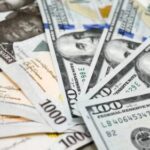
Yesterday, the National Bureau of Statistics (NBS) mentioned that it will now be including illegal/hidden activities such as drug trafficking, prostitution, among others, when putting forward the calculation of the country’s Gross Domestic Product (GDP).
In the interim, the NBS has tendered 2019 as a new GDP base year and 2024 as the new base year for inflation reckoning, which they disclosed at a sensitization workshop on GDP and Consumer Price Index (CPI) rebasing organized in collaboration with the Nigerian Economic Summit Group (NESG).
The National Bureau of Statistics (NBS) has proposed 2019 as the new base year for Nigeria’s Gross Domestic Product (GDP) rebasing exercise, citing the relative stability of economic activities during that year compared to the disruptions caused by the COVID-19 pandemic and subsequent policy shifts.
According to the bureau, the rebased GDP will incorporate emerging and previously unaccounted-for sectors, including the digital economy, pension fund administrators, the National Health Insurance Scheme (NHIS), the Nigerian Social Insurance Trust Fund (NSITF), modular refineries, and domestic households employing labor. Additionally, the rebasing will account for illegal and hidden economic activities, enhancing the accuracy and inclusivity of GDP calculations.
Dr. Baba Madu, Head of National Accounts at the NBS, explained the rationale for including illegal and hidden activities, stating: “Illegal activities are aligned with international best practices, specifically the System of National Accounts (SNA) 2008. For instance, in some countries, illegal activities such as drug trade drive significant economic contributions. While such activities lack legal backing in Nigeria, they generate income and have an economic impact. Similarly, activities like prostitution, though illegal, often support livelihoods. The challenge lies in data collection and legal recognition.”
He also highlighted the hidden economy, citing examples such as underreported incomes or concealed economic activities. “If a store owner begins selling items like cannabis alongside regular provisions, it falls under the hidden economy. Globally, these challenges exist but typically account for less than 3–3.5% of GDP,” Dr. Madu noted.
Statistician-General Prince Adeyemi Adeniran emphasized the importance of GDP and Consumer Price Index (CPI) rebasing. He remarked: “Rebasing ensures that our economic indicators reflect current realities. As economies evolve, with new industries emerging and consumption patterns shifting, statistical measures must be updated to remain relevant. This process provides a more accurate picture of Nigeria’s economic landscape, forming the foundation for informed policymaking, strategic planning, and effective governance. The NBS is undertaking this exercise with utmost professionalism and dedication.”
Highlighting the broader benefits of GDP rebasing, Dr. Tayo Aduloju, Chief Executive Officer of the Nigerian Economic Summit Group (NESG), stated: “Accurate data enhances credibility. For instance, after the 2014 GDP rebasing, Nigeria’s debt-to-GDP ratio fell from 19% to 11%, improving the country’s creditworthiness and making it more attractive to foreign investors. Transparency and demonstrated growth potential send a clear message that we understand our economy and are open for business.”
Dr. Aduloju also pointed out the policy advantages of rebasing: “Rebasing provides a comprehensive economic map, enabling policymakers to identify high-growth sectors for scaling and low-growth sectors requiring targeted interventions. For example, Ghana’s 2010 rebasing led to a 60% GDP increase, allowing for more strategic investments in infrastructure and social services, fueling sustainable growth.”



